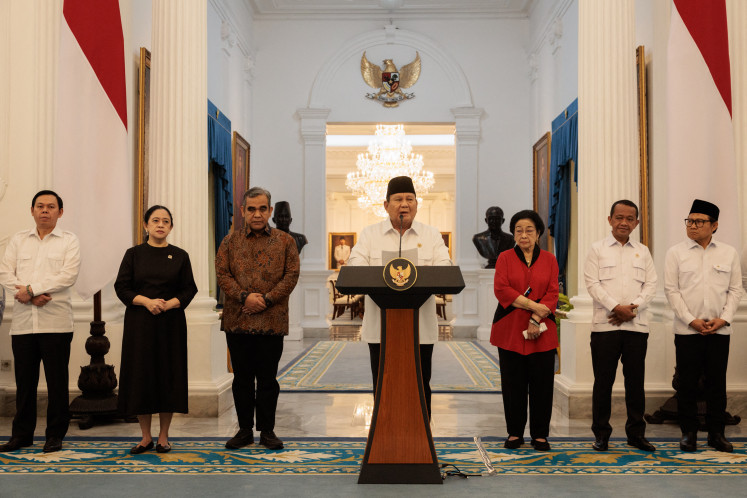Popular Reads
Top Results
Can't find what you're looking for?
View all search resultsPopular Reads
Top Results
Can't find what you're looking for?
View all search resultsIt is time to end modern slavery at sea
As we celebrate International Migrants Day, it is important to recall that Dec. 18 is chosen to mark the signing of the International Convention on the Protection of the Rights of All Migrant Workers and Members of Their Families.
Change text size
Gift Premium Articles
to Anyone
A
s we celebrate International Migrants Day, it is important to recall that Dec. 18 is chosen to mark the signing of the International Convention on the Protection of the Rights of All Migrant Workers and Members of Their Families. Indonesia signed the treaty in 2004 and ratified it in 2012. The treaty, however, does not apply to migrant fisherfolk and seafarers who work on board vessels registered to states of which they are not nationals.
This is a significant weakness for the protection of migrant fishers, and is not unique to this treaty. The protection regime for migrant workers has evolved from the needs, as well as the advocacy, of land-based workers: Domestic workers, construction workers, workers in factories and farms. The protection of sea-based workers — fishers and seafarers — also involve more complicated jurisdictional issues.
Their workplace — the vessel — is mobile, it can be registered in one country, owned by corporations registered in another country, and can travel the waters of many more. The traditional language developed around the protection of land-based migrant workers or human trafficking often fall short of being able to reflect these complexities of at-sea migrant work.
While land-based migrant workers outnumber sea-based ones, migrant fishers contribute significantly to the fisheries sector. Demand for fish globally is increasing, as population and per capita human consumption of fish both grow. Nearly 78 percent of the fishers are located in Asia, around 30 million people.


















